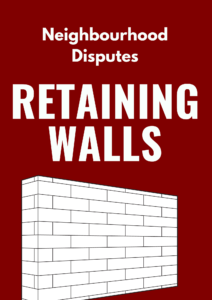Dealing with the property of a loved one after they pass away can be overwhelming. Questions like “Who inherits the house?” or “What are the legal steps to transfer ownership?” are common. Understanding the process of estate transfers and the necessary legal steps is crucial to ensure the property is handled correctly. This guide will walk you through the key steps to manage, sell, or transfer a home as part of an estate.
1. Transferring Ownership
When someone dies, their home does not automatically transfer to the next of kin. The property forms part of their estate and is subject to the terms of their will, or the laws of intestacy if no will exists.
- Executor’s Role: The executor named in the will is responsible for managing the estate. This includes obtaining a grant of probate to legally handle the property.
- Intestacy Rules: If there is no will, the next of kin may need to apply for letters of administration to take on similar responsibilities.
- Transferring the Title: Once probate or letters of administration are granted, the title to the property can be transferred to the beneficiary or beneficiaries. This requires lodging documents with the relevant state or territory land registry.
2. Selling the Home
In some cases, the executor or beneficiaries may decide to sell the home rather than retain it.
- Executor’s Authority: Executors have the legal authority to sell the property, but they must act in the best interests of the estate and follow the directions in the will.
- Beneficiary Consent: If the property is left to multiple beneficiaries, their consent may be needed before proceeding with a sale.
- Preparing for Sale: Executors are responsible for ensuring the home is market-ready. This may involve clearing out personal items, conducting minor repairs, and hiring a real estate agent.
- Distributing Proceeds: After the sale, proceeds are used to settle any outstanding debts of the deceased before being distributed to beneficiaries.
3. When the House is Left to Multiple Beneficiaries
A house left to multiple beneficiaries can lead to complexities, especially if the parties have differing opinions about what to do with the property.
- Co-Ownership Options: Beneficiaries may choose to retain the property as co-owners, rent it out, or sell it and share the proceeds.
- Disputes: If beneficiaries cannot agree, mediation can help resolve disagreements. As a last resort, the matter may go to court for a decision.
- Partition Orders: In some cases, courts can order the property to be sold and proceeds divided, ensuring an equitable outcome.
4. Goods Left Inside the Home
The personal belongings left in the home are also part of the estate and must be dealt with by the executor.
- Sentimental Items: Executors may consult beneficiaries to determine who receives sentimental or family heirlooms.
- Valuable Goods: Items of significant value should be appraised and included in the estate inventory for distribution or sale.
- Unclaimed Items: For goods that beneficiaries do not wish to keep, the executor may arrange for donation or disposal.
5. Navigating the Process with Legal Guidance
Dealing with a loved one’s property after their passing involves a mix of legal, financial, and emotional considerations. Whether you’re an executor managing an estate or a beneficiary with questions about your inheritance, seeking legal advice can help you navigate this challenging process.
At Bennett Carroll Solicitors, we have the expertise to guide you through property transfers, sales, and dispute resolution. Contact us today for compassionate and practical legal assistance.
Need Help Managing or Planning Your Estate?
Navigating the complexities of estate property transfers and understanding the legal steps involved can be challenging. Whether you’re an executor managing an estate or a beneficiary with questions about inheritance, seeking professional legal advice is essential. At Bennett Carroll Solicitors, we specialize in estate law, including probate processes, property transfers, and dispute resolution. With offices in Brisbane, Gold Coast, and Sunshine Coast, our experienced team is ready to assist you throughout South East Queensland. Contact us today to ensure your estate matters are handled with care and professionalism.
Other useful resources:
- Queensland Government’s Titles Registry
- REIQ – Real Estate Institute of Queensland
- Can an Executor Sell Real Estate Without Beneficiaries’ Consent? Understanding estate law in Australia
- Probate and Estate Administration







